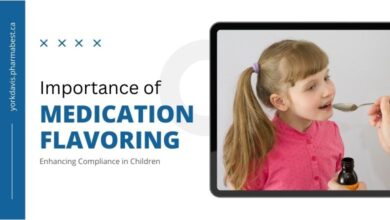Why FNPs Should Adapt to New Healthcare Technology

In today’s rapidly changing healthcare landscape, family nurse practitioners (FNPs) occupy a crucial role, and their adaptation to the advancements in healthcare technology is increasingly important. As technology evolves, it brings significant improvements in patient care, accessibility, and efficiency, which FNPs can leverage to enhance their practice. This article aims to delve into why it’s essential for FNPs to embrace these technological changes. By integrating new technologies, FNPs can improve the quality of care they provide, make healthcare more accessible, streamline their workflows, make more informed decisions, and engage patients more effectively.
The role of education in embracing technology
For FNPs, keeping abreast of technological advancements in healthcare is essential. Enrolling in an MSN FNP online program, such as the one offered by American International College (AIC), creates a pathway to acquire up-to-date knowledge and skills in the latest healthcare technologies. AIC’s program is tailored to provide FNPs with an understanding of the current technological landscape in healthcare, equipping them with the ability to apply these advancements effectively in their practice. As healthcare technology continues to evolve rapidly, FNPs who engage in such educational programs can ensure they are well-prepared to adapt to and utilize technology when completing evidence-based practice, thereby enhancing their professional capabilities and the care they provide to patients.
Enhanced patient care through technology
Improving diagnostic accuracy
Adopting new healthcare technology directly contributes to enhanced patient care, a primary goal for any FNP. The introduction of cutting-edge technologies in healthcare has markedly improved the diagnostic abilities of FNPs. These modern diagnostic tools are changing the landscape of patient care, allowing FNPs to detect and diagnose conditions with greater precision and speed. Utilizing everything from advanced imaging equipment to quick-result testing kits, these innovations enable earlier and more accurate diagnoses. Early detection is crucial for effective treatment, and these tools facilitate this, allowing timely medical intervention. The enhanced accuracy provided by these technologies empowers FNPs to make better-informed decisions in patient care, ultimately leading to improved health outcomes and fostering greater confidence in the healthcare services provided.
Streamlining treatment processes
Healthcare technology has evolved to the point where treatment processes are becoming more efficient and effective, greatly benefiting the work of FNPs. Innovations such as digital prescription services, automated patient monitoring systems, and enhanced communication platforms have streamlined various aspects of patient care. These technological advancements enable FNPs to manage their patients’ care more seamlessly, reducing the likelihood of errors and improving the overall quality of care. The use of technology in treatment not only saves valuable time but also ensures that patients receive the most appropriate and effective therapies, enhancing the overall healthcare experience for both patients and practitioners.
Telehealth: improving and expanding accessibility
Telehealth has revolutionized how healthcare is delivered, making it an essential tool for FNPs. Telehealth has emerged as a transformative tool for FNPs, enabling them to extend their healthcare services beyond conventional clinic settings. This technological innovation is particularly beneficial in reaching patients in remote or underserved areas, where access to healthcare is often limited. Telehealth breaks down geographical barriers, allowing FNPs to consult, diagnose, and manage care for patients who might otherwise have difficulty accessing medical services. This expansion of reach is critical in ensuring equitable healthcare delivery, making quality medical care more inclusive and accessible to a broader population, including those in rural or isolated communities.
Convenient and accessible care
Telehealth services have redefined the convenience and accessibility of healthcare, making it more patient-centric and better aligned with the goals of FNPs. By offering medical consultations and follow-ups via digital platforms, telehealth minimizes the need for physical travel, which can be a significant hurdle for many patients, especially those with mobility challenges or time constraints. This ease of access not only enhances patient comfort but also encourages timely medical consultations, which is crucial for effective treatment. For FNPs, providing care through telehealth means they can deliver continuous and comprehensive care, ensuring their patients receive the attention and treatment they need in a timely and convenient manner.
Efficient new technology
Streamlining administrative tasks
Advancements in healthcare technology have greatly eased the administrative load for FNPs, bringing a significant positive impact to their practice. Automation of tasks such as maintaining patient records, scheduling appointments, and managing prescriptions has reduced the time FNPs need to spend on paperwork. This shift toward more automated administrative processes allows FNPs to allocate more of their valuable time to provide direct care to their patients. The decrease in administrative tasks not only boosts the efficiency of FNPs but also enhances their ability to focus on patient-centered care, ultimately leading to improved patient outcomes and satisfaction. Evidently, the integration of new technology in healthcare practices leads to greater efficiency and time savings for FNPs.
Enhancing clinical workflow
For a nurse practitioner to succeed, their clinical workflow needs to be flexible and adaptable, to both patient volume and patient illness and treatment. By using new technology such as telehealth and accurate diagnostic testing, FNPs can adapt to the ebb and flow of patient intake while ensuring they offer the best treatment possible.
Healthcare technology can benefit patients and nurses
Incorporating new technologies in healthcare practices is essential for FNPs. Pursuing further education can provide FNPs with the necessary skills and knowledge to effectively utilize these technologies. As healthcare continues to advance, staying updated with technological innovations is crucial for FNPs to provide the best possible care, improve accessibility, enhance efficiency, make data-driven decisions, and engage patients effectively. Embracing technology is not just about staying current; it’s about enhancing the quality of care provided to patients and improving the overall healthcare experience.





